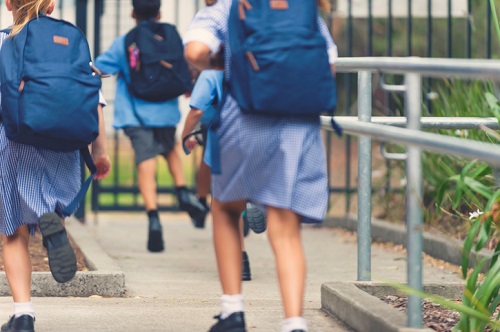
Australia’s private school sector recorded its strongest growth in more than a decade, the latest figures from the Australian Bureau of Statistics show.
According to the data, private schools experienced 2.5% growth in full time equivalent enrolments being the sector’s highest since 2008.
The 2019 figures show that Independent school sector represents 14.8% of all Australian school enrolments, and 19.0 per cent of all secondary enrolments.
Independent Schools Council of Australia (ISCA) CEO, Dr David Mulford, said that in 2019 there was a net increase of 10 Independent schools in Australia, with student numbers growing by over 14,000.
“These numbers show that parents have strong confidence in Independent schools,” Dr Mulford said.
“In 2019 the Independent school sector also recorded the largest growth of Aboriginal and Torres Strait Islander enrolments at 7.1 per cent”.
In 2019, Independent school enrolment growth was recorded across all fee levels, with the strongest growth in low fee (below $5,000 per annum) Independent schools.
Enrolments increasing in NSW
In NSW, 2018-2019 marked a period of significant growth for student enrolments with the state’s 401 private schools growing by 4,871 students (2.4%), compared to 1.0% in the public school sector.
The Catholic systemic school sector, with 550 schools, grew by 451 students or 0.2%.
The Association of Independent Schools NSW (AISNSW) chief executive, Dr David Newcombe, lauded the results.
“This rapid growth – the fastest of the three school sectors in NSW – is driving the development of new independent schools and the rapid expansion of teaching and learning infrastructure in existing independent schools,” Dr Newcombe said.
Dr Newcombe said the sector’s enrolment growth over the past few years has been boosted by a surge in primary school aged students.
“Traditionally, the enrolment growth in independent schools has been driven by new secondary students. That is still the case, but independent primary enrolments are now growing at 2.7 per cent – faster than independent secondary enrolments, which increased by 2.2 per cent,” he said.
Dr Newcombe said the bulk of new independent school students were from low- and middle-income areas.
“Our sector is now very much a sector that caters for families across all demographics; the median fee received from parents in NSW independent schools is $5,169 per year,” he said.
'Parents value education diversity'
Independent Schools Queensland (ISQ) said the growth trajectory of Queensland’s independent schooling sector is continuing with new enrolment figures showing 3.2% growth in the last year, with enrolments into Year 7 increasing by nearly 8%.
More than 124,500 full-time equivalent (FTE) students were enrolled in 211 Queensland independent schools in August 2019 – up 3,810 students and 7 schools on 2018.
ISQ executive director David Robertson said parents valued the education diversity and opportunities on offer in independent schools.
“ISQ’s longitudinal What Parents Want survey has consistently found parents choose independent schools because they: prepare students to fulfil their potential in life; employ high quality teachers; meet individual student needs; enforce good discipline and offer distinctive approaches to teaching and learning,” he said.
Robertson said analysis of the data also showed the independent sector was educating a growing number of the state’s most vulnerable students.
The number of independent special schools – which includes specialist schools for students with disability and Special Assistance Schools for disengaged and at-risk students – has risen from 22 to 24 schools across 31 sites. These schools enrolled 2,505 students.
Robertson said the integrated approach Special Assistance Schools take to student education and welfare had clearly struck a chord with communities.
“Specialist education services for disengaged young people are the fastest growing school type in Queensland’s independent schooling sector," he said.
"It’s an area of high need that requires dedicated and compassionate professionals to build student confidence, skills and abilities".


